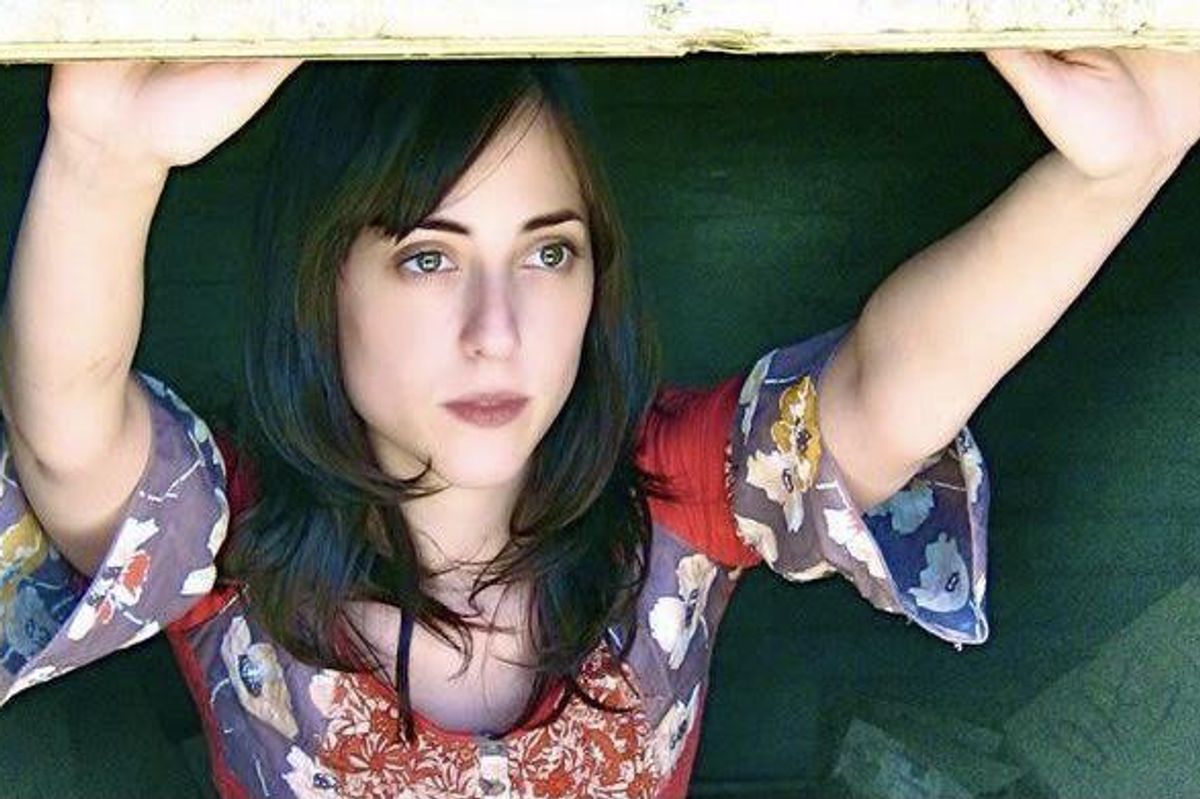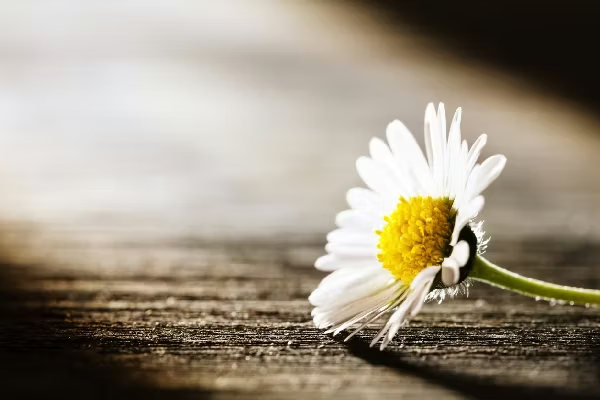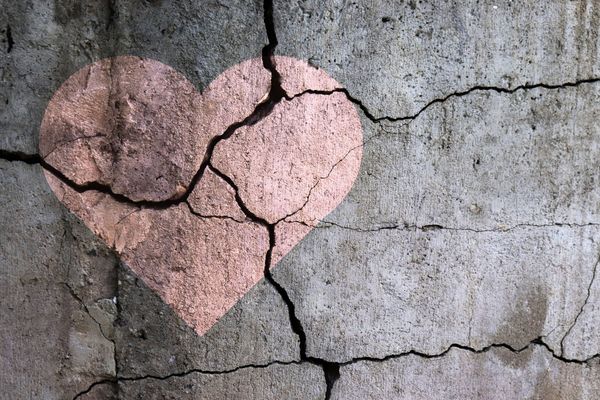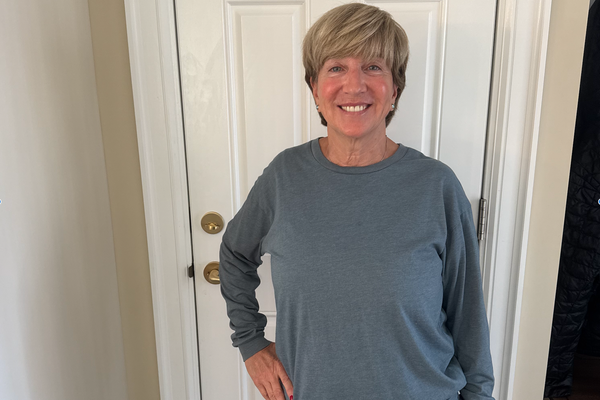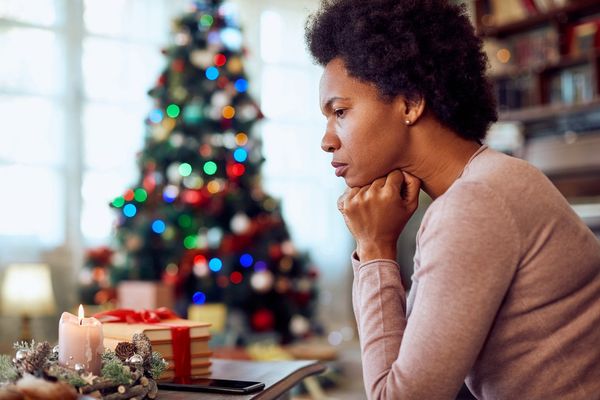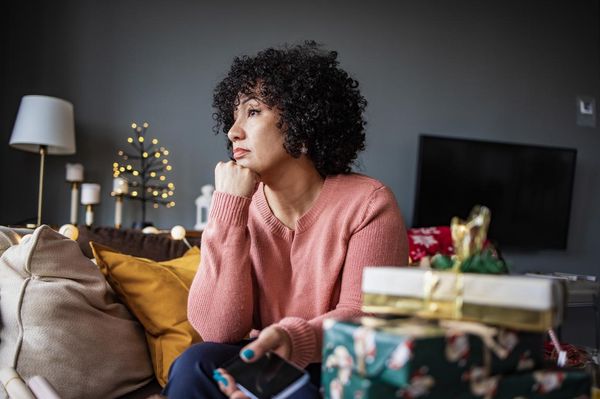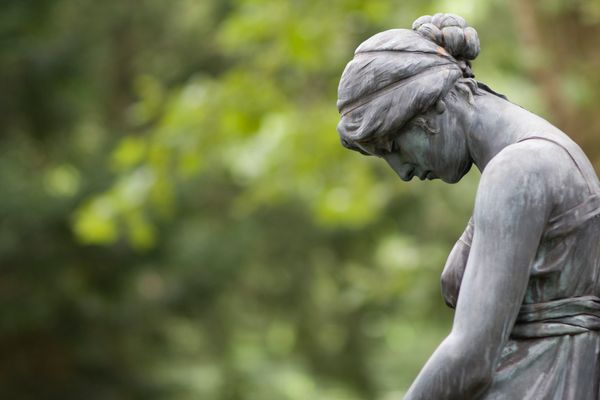When I learned I was pregnant in mid-December, my husband, Patrick, and I were ecstatic. We'd been trying for a year and given my "geriatric" age of 37, had been wondering if something was wrong. Patrick, 42, had his semen tested. All clear! I had some blood tests to measure my hormone and thyroid levels and was about to go in for imaging, when boom — it worked! We were finally pregnant.
The same day we found out that I was about six weeks along, I received a call I'd been dreading for more than a decade. My papa, who had been incarcerated for 12 years, was in the hospital. It wasn't the prison that notified me (despite my position as medical power of attorney for my father), but Matthew, a 30-year-old inmate who'd been an unofficial caregiver to my 80-year-old father.
"Your dad just got taken to the hospital," he said. "He's very sick."
"With what?!" I cried, knowing the unbearable answer.
"Covid," Matthew said.
I buckled. I wailed. I ran into the bathroom and vomited as diarrhea poured out of me. It would be a week before my father called me — an unusually long amount of time for us. His voice was ragged and far away, like he was calling from a car phone in 1995. But I was so relieved.
A week later, on Christmas Day (and my father's birthday), I lost my pregnancy. I hemorrhaged, but no ambulance or ER room could take me because this was L.A in the peak of COVID. So I bled alone, sobbing, and wondering if I would die.
My dad called me the next day.
"I think I'm dying," he said. I wanted to tell him I thought I was dying, too.
"It's just the after effects of Covid," I said, having no real idea what I was talking about. "Just try to sleep on your stomach and cough every hour."
"I can't breathe," he gasped through an unrelenting cough.
"You'll be okay," I said.
I hung up the phone and called the prison. They told me my father was improving and stable. Three weeks later, he died. Respiratory failure due to Covid-19.
Over the following days, I lost myself in an abyss of agony. I barely ate or slept or spoke. Patrick tried to feed and hold me, but I could accept nothing because I was nothing. A blank body where a person used to live. I would give up, I knew. Any second now …
I started to take food again, like an abandoned dog who began to regain her faith in humans. And Patrick urged me to take walks — anything to just get out of bed.
"Why not one of your yoga things? Or Pilates?" he said.
Yoga and Pilates were my go-to exercises. But that was in the before, when I had a father. That was also when I was pregnant, too, following along to pregnancy-safe YouTube videos, imagining my own belly growing as big as the teacher's. The idea of these exercises repelled me not only because they reminded me of my better, previous life, but because they can be slow and quiet. They leave too much room for reflection. I'd had more than enough of that.
So for days longer, I stayed in bed letting the sadness embody me. The loss of my father and what I'd interpreted as my future (my lost, unborn baby) boiled over into a venomous rage. My muscles felt tired and flu-like from indolence, and I felt entitled to lie in bed forever.
But that rage. My hands wanted to make fists and my lungs wanted to pant. My voice wanted to scream.
Remembering that my father had been an avid boxing fan who was also a black belt in karate, I acquired FightCamp, a home boxing setup. For days, it lay in its giant box on the floor in the living room. I couldn't align my mental energy with my physical energy to set it up.
One restless night, when reading and podcasts and TV could not soothe me to sleep, I went downstairs and assembled it. I threw on my old, musty gym clothes and geared up for my first boxing workout. I wasn't so much interested in a workout; I just wanted to beat someone up very badly. A boxing bag would have to do.
I'd heard that boxing has less to do with your arms than it does your core, but I didn't fully understand this until that first night. Guided by an app, I learned that ab work would be a major element of my workouts. What's worse: I'd have to punch the bag while actually doing the ab work.
The introductory session was only 15 minutes long. Easy! I thought. I was dead wrong. Though I'd slipped on my gloves feeling so ferocious I would topple the bag right over, I found that my punches barely made a dent. On top of my measly punches, grunting sit-ups, and trembling plank poses, there was the choreography. Even when alone, boxing is a dance.
I thought I'd call it quits. But as I was sweating and struggling, it dawned on me: I wasn't feeling bad. Sure the grief was still eating me alive from within, but for those 15 terrible minutes, I couldn't feel its teeth. The only pain I felt was in my biceps and quads. My heart was pounding, but this time not out of fear.
Now, I box every day. It's only been a couple weeks, so I'm still an amateur, but I'm building confidence. My core is getting stronger. My punches are getting faster, harder. I sleep better and more deeply. I feel more at peace about the loss of my pregnancy now that I've finally mustered up the courage to connect with my body since it happened.
I don't think I will ever recover from the loss of my father, and I am still burning with rage that he is dead, but now I can channel that rage into uppercuts and jabs and expel it from my body.
There are some days when I'm boxing that I do feel overcome by grief, and when that happens, I use it to power my punches, too. Some days that doesn't work, and I find myself crying without even realizing it. When this happens, I always think I will give up any second now.
But I always keep going.
- As death approaches, our dreams offer comfort, reconciliation ›
- Grieving the Death of My Sister - HealthyWomen ›
- Grieving is Hard, Necessary Work and Coronavirus Makes it Harder ... ›
- The First Holiday Without My Dad Was Hard but Support Helps - HealthyWomen ›
- Physical symptoms of grief - HealthyWomen ›

